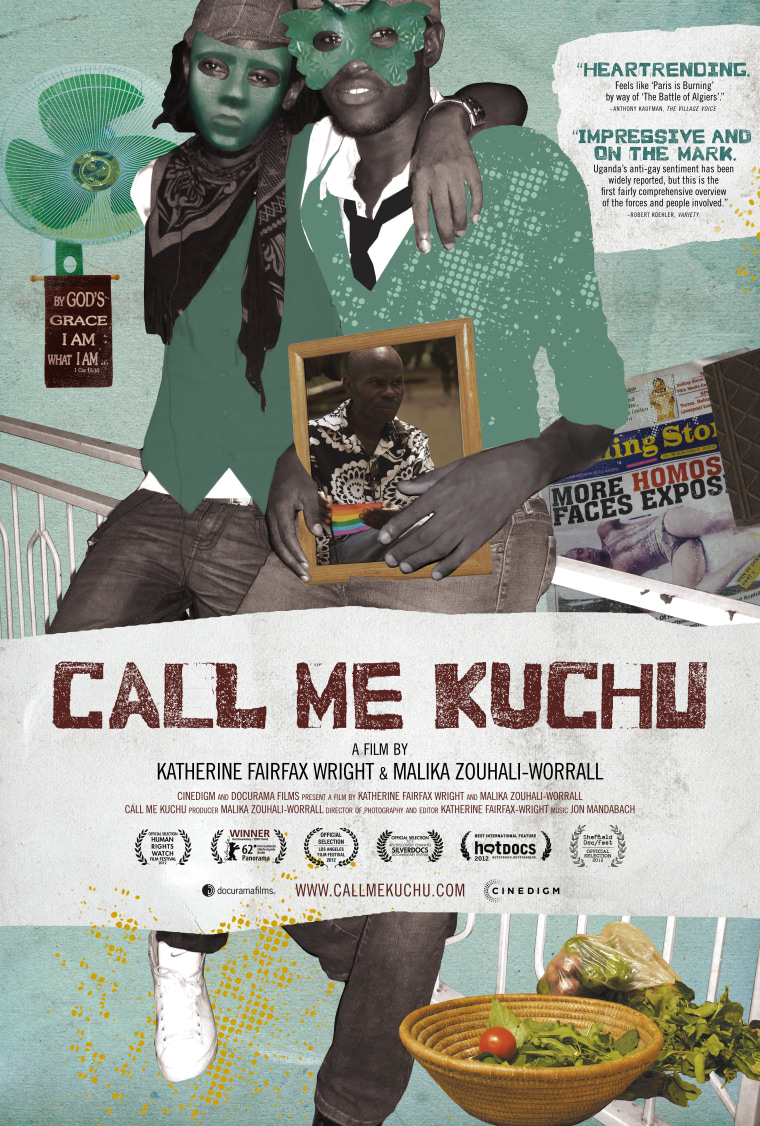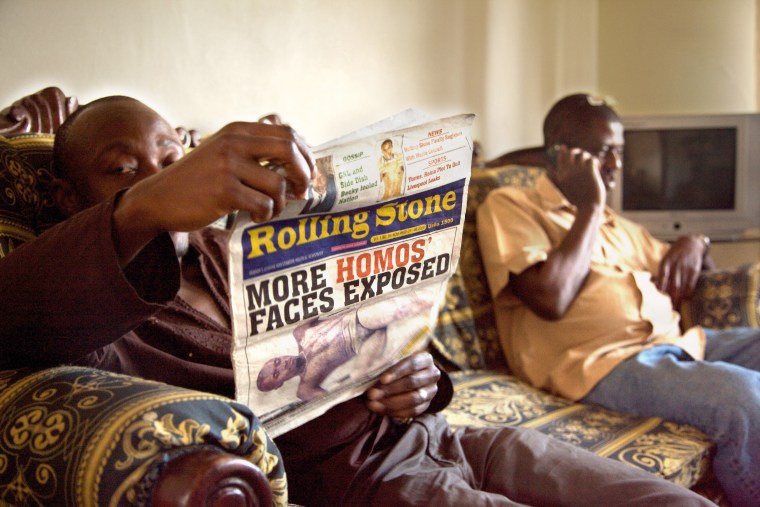
The film centers on the work of David Kato, the first openly gay man in Uganda. Kato and his fellow activists tell their harrowing stories which include tales of being cast out by families, rape to prove they're not gay, and the constant fear that they could be attacked or killed at any time.
As film subject Stosh says, "It's one thing being outed. It's another thing being denied."
While Uganda may seem like it's a world if not continent away, the United States is inextricably tied to their fight. As the film highlights, the American evangelical movement has actively involved itself in the campaign against homosexuality in Uganda. Ugandan clergy are seen vehemently denying homosexuality in the film calling it a "learned behavior" but the denial of homosexuality is not the clergy's alone.
There's a calculated effort by certain media entities in Uganda to "out" those who are LGBTQIA. The media goes as far as to link the community to the Islamist fundamentalist groups responsible for the 2010 World Cup bombing in Kampala. Film subject Long Jones describes that effort best with, "The moment they start pulling us into terrorism you know they really want to destroy us.”
The tension in Uganda was at an all time high during the making of the film in how being gay is seen as a sin, illegal and punishable with jail time. Added to the equation is the introduction of an Anti-Homosexuality Bill. The original form of the bill included the death penalty for acts of "aggravated homosexuality" which translated to things like gay people having sex with minors, or in cases where those who are both HIV-infected and gay having sex.
International pressure against the bill plays a small yet significant part in the initial outcome of the bill that is still pending. Ultimately the film yields both tragic and hopeful results but also shows that the U.S. is not that far ahead when it comes to a complete understanding and acceptance of the LGBTQ community.
What is promising is that it's a step forward but as this film shows us the fight is not over. As they say in Uganda, a luta continua. (The struggle continues.)
Host Melissa Harris-Perry welcomed a Sunday discussion about President Obama's trip to Africa, and the legacy of Nelson Mandela. See the first segment below.
